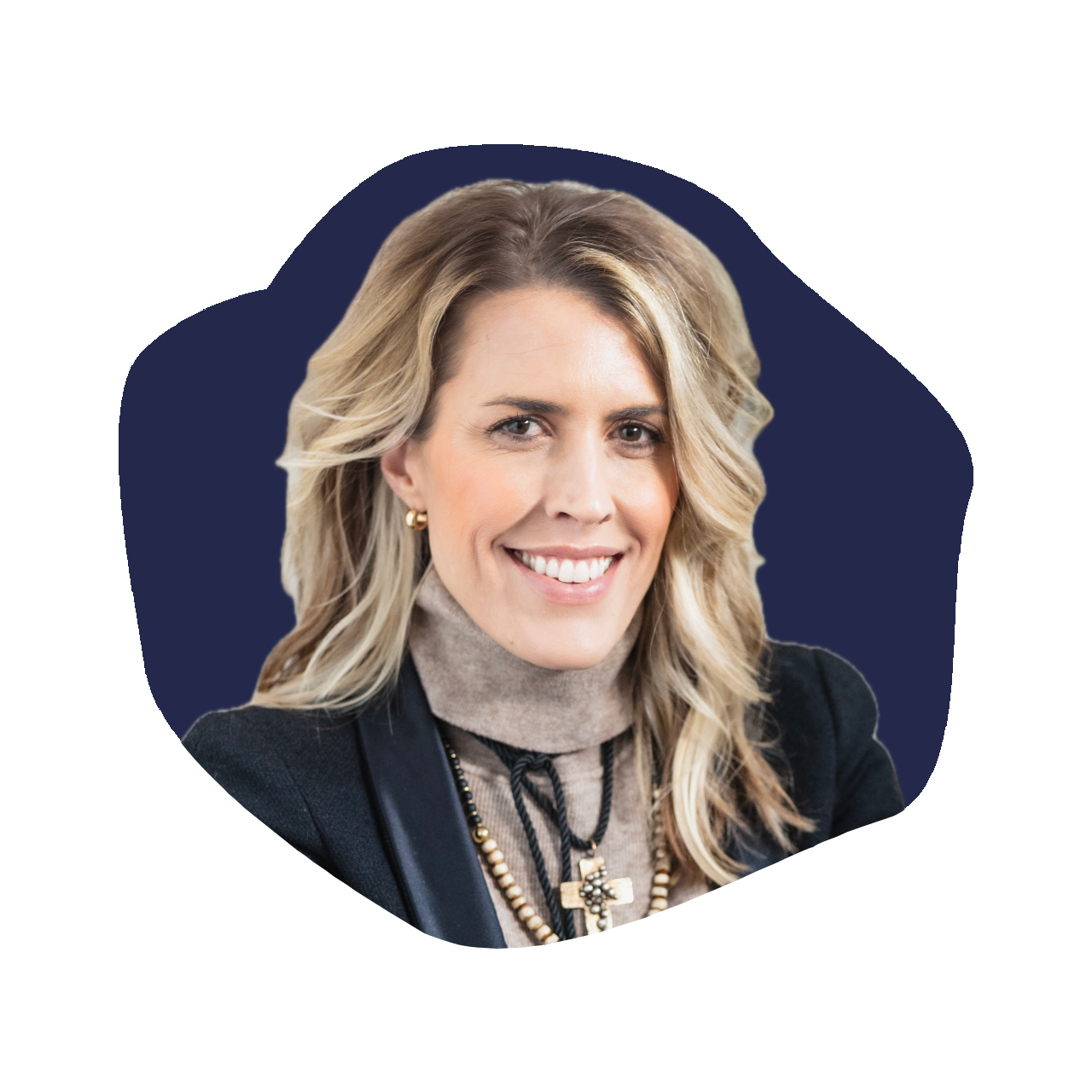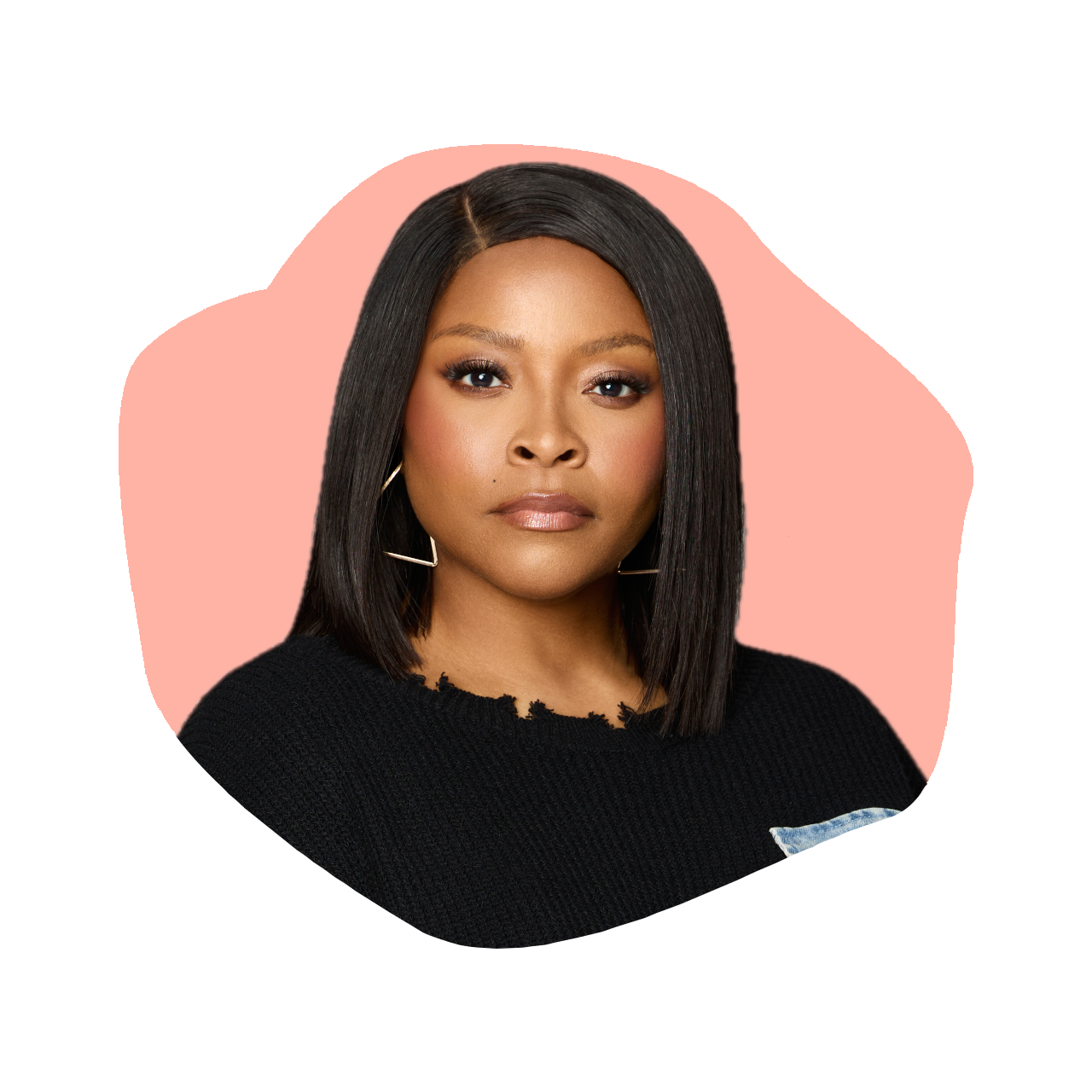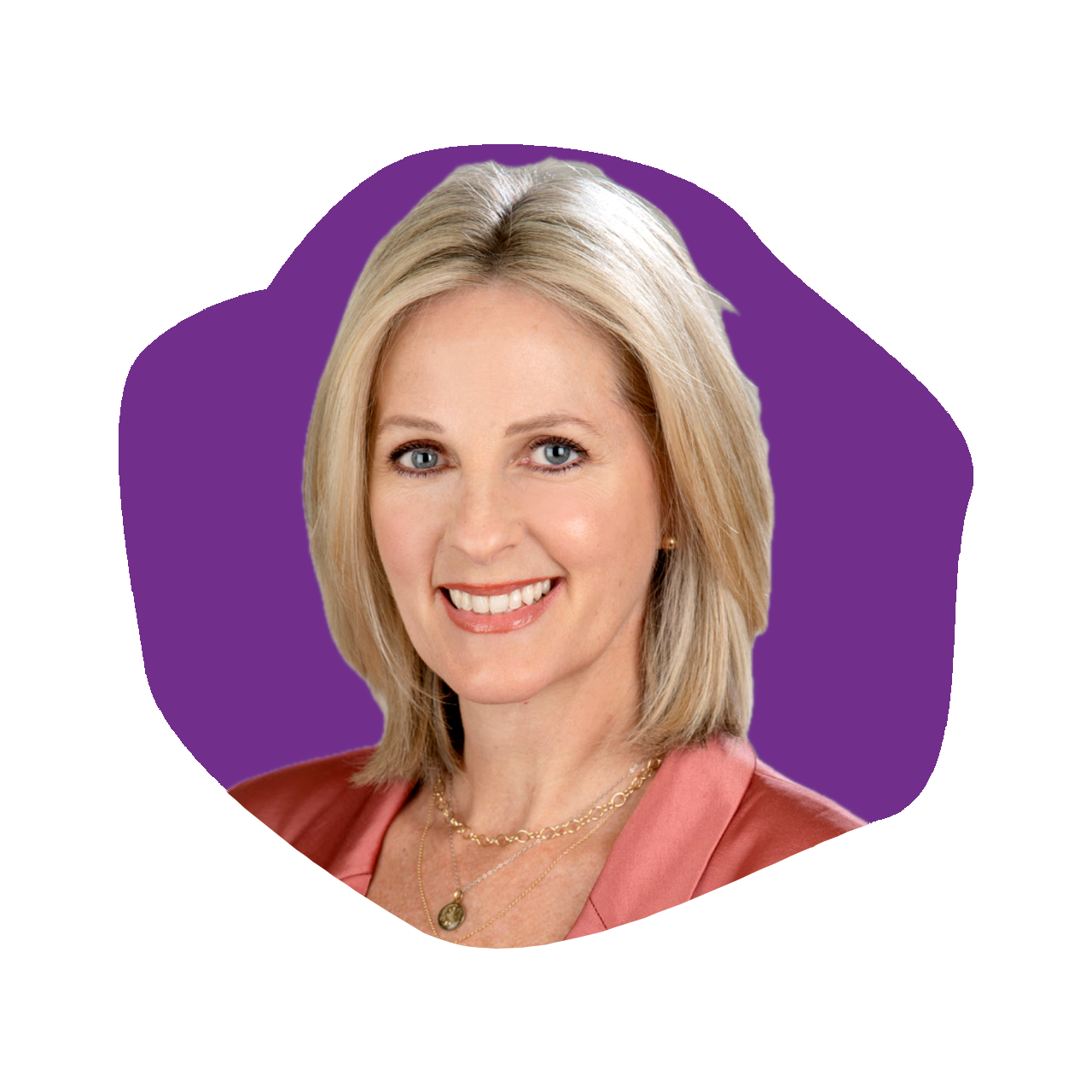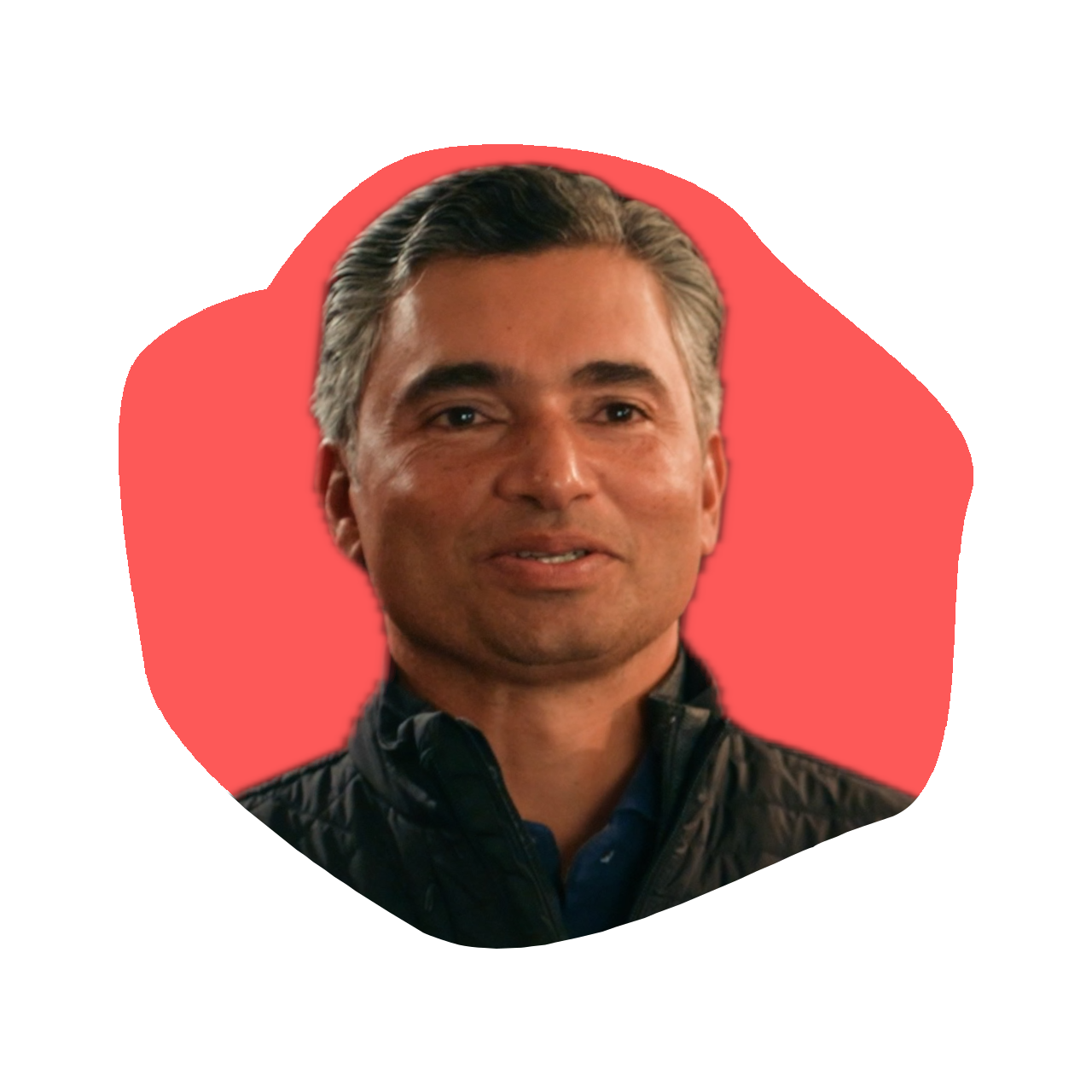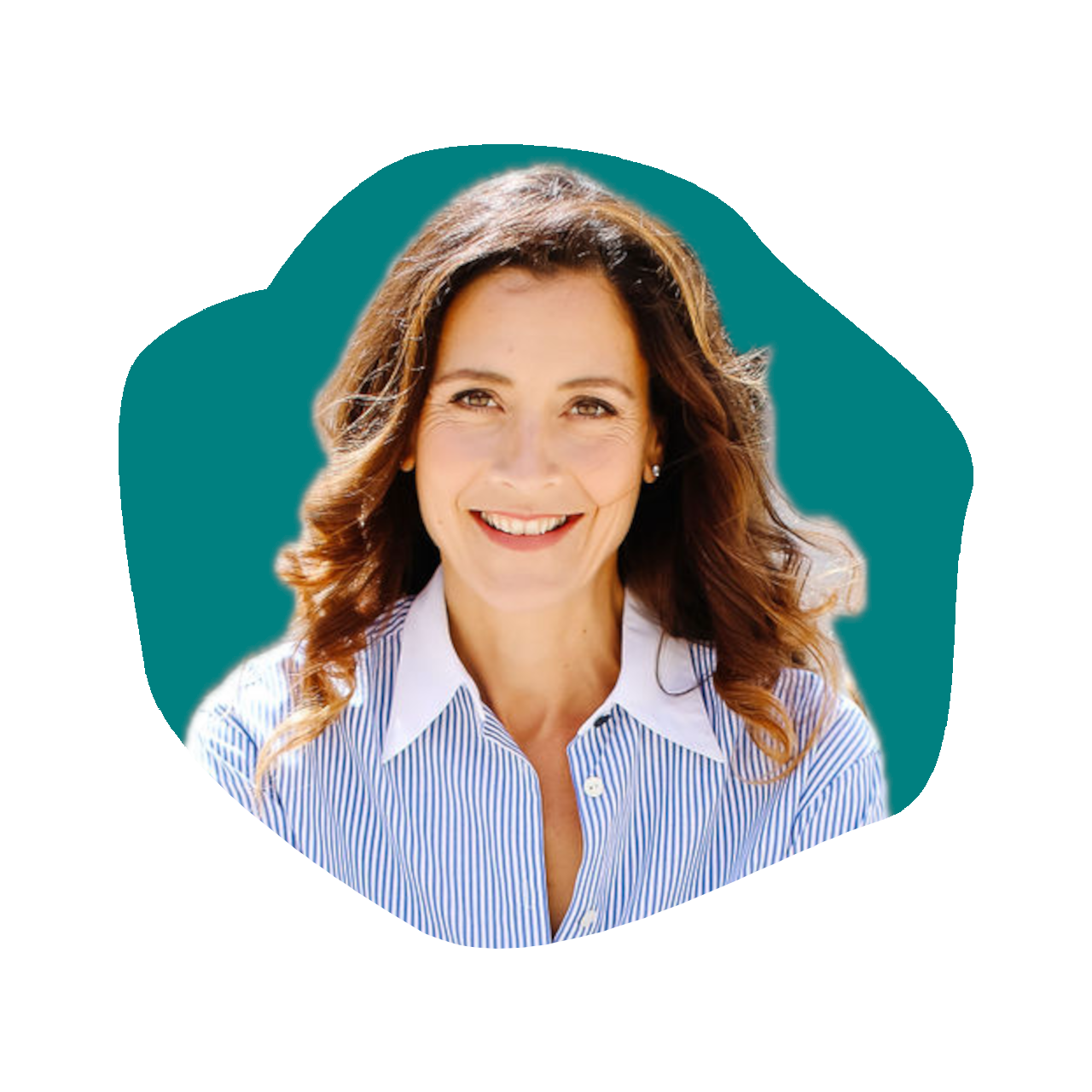Cynthia Sakai: Founder of evolvetogether
Episode 711
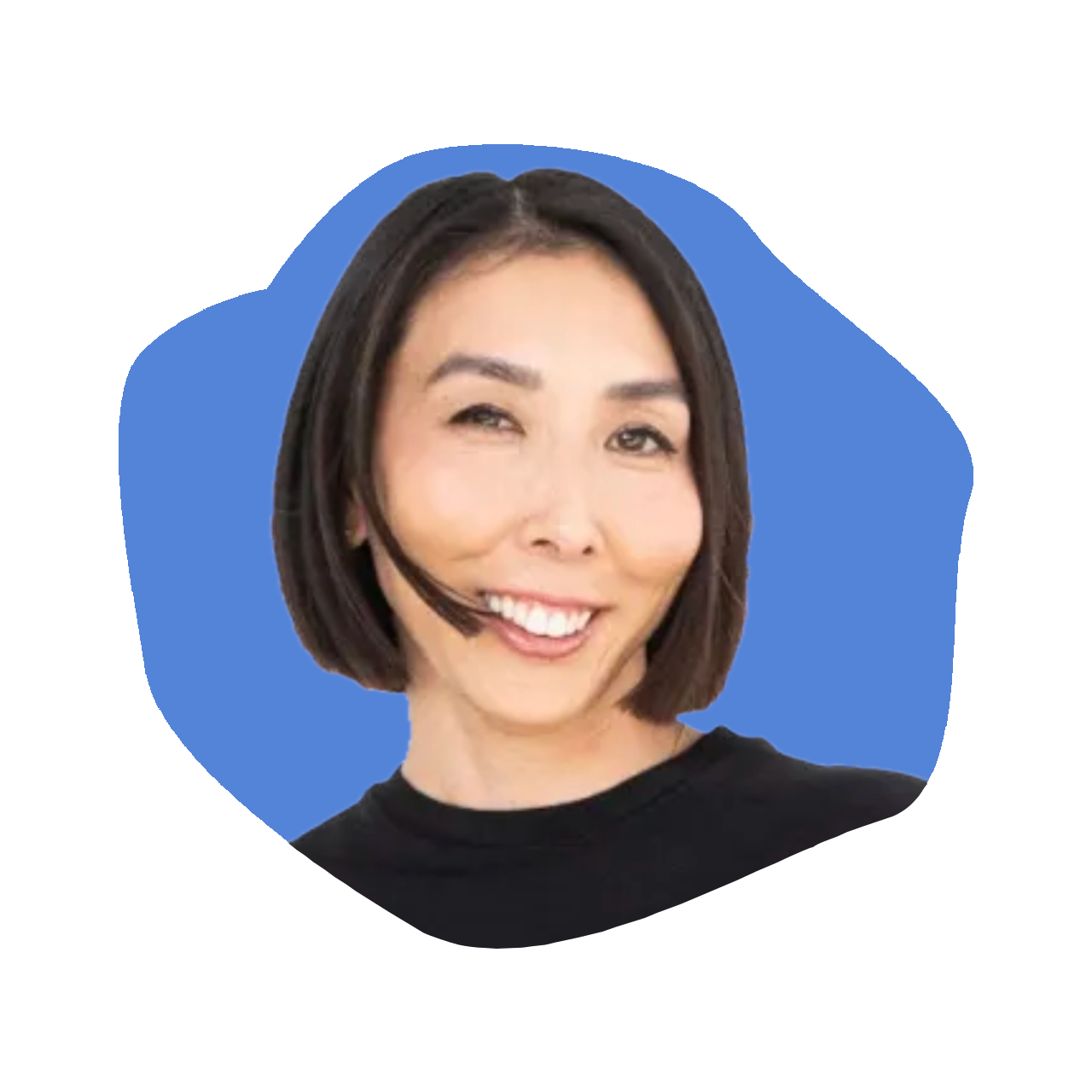
On this episode of The Kara Goldin Show, I’m joined by Cynthia Sakai, Founder and CEO of evolvetogether—the personal care brand making waves for its beautifully designed, clean, and high-performing daily essentials. With a mission to create products that connect people, community, and the planet, evolvetogether is proving that luxury and sustainability can go hand in hand.
In our conversation, Cynthia shares her journey as a serial entrepreneur and how she’s redefining what it means to scale a brand with purpose. We dive into the early days of product development, the non-negotiables behind her clean and sustainable formulas, and the strategy behind evolvetogether’s rapid growth in both DTC and retail. She opens up about staying authentic in a category crowded with greenwashing, how she approaches storytelling that cuts through the noise, and what it takes to build real trust with consumers.
Whether you’re a brand builder, product founder, or someone who appreciates intentional design and high-impact entrepreneurship—this episode is full of insights you won’t want to miss. Now on The Kara Goldin Show.
Resources from
this episode:
Enjoying this episode of #TheKaraGoldinShow? Let Kara know by clicking on the links below and sending her a quick shout-out on social!
Follow Kara on LinkedIn – Instagram – X – Facebook – TikTok – YouTube – Threads
Have a question for Kara about one of our episodes? Reach out to Kara directly at [email protected]
To learn more about Cynthia Sakai and evolvetogether:
https://www.instagram.com/cynthiasakai
https://www.linkedin.com/in/cynthia-k-sakai-391abb48
https://www.instagram.com/we_evolvetogether/
https://www.evolvetogether.com/
Transcript
Kara Goldin 0:00
I am unwilling to give up that I will start over from scratch as many times as it takes to get where I want to be. I want to be you. Just want to make sure you will get knocked down. But just make sure you don’t get knocked out, knocked out. So your only choice should be go focus on what you can control. Control. Control. Hi everyone, and welcome to the Kara Goldin show. Join me each week for inspiring conversations with some of the world’s greatest leaders. We’ll talk with founders, entrepreneurs, CEOs and really, some of the most interesting people of our time. Can’t wait to get started. Let’s go. Let’s go. Hi everyone and welcome back to the Kara Goldin Show. Today. I’m joined by Cynthia Sakai, who is the founder and CEO of an incredible brand that I was not familiar with. And I am so happy that I have now discovered it, used it, love it, and it’s called evolvetogether all one word. It’s a personal care brand known for its thoughtful design and clean high performing formulas and mission to make sustainable living part of the of everyone’s everyday life. But behind the design is a powerful mission from Cynthia to create high performing daily essentials that connect people and community and the planet. And I just love everything about this entrepreneur. She’s a serial entrepreneur. We’re going to get more into what Cynthia was doing before creating this incredible brand, but what it means to I hope, to discuss what it means to scale with purpose and blending clean, award winning formulas with intentional design, because I think that they’ve just completely nailed it. And the her evolution also from going from a different industry to this industry, the personal care industry, is something that I know so many people fear, I think that they can’t do. But it’s really incredible to see what Cynthia has accomplished with evolvetogether. So Cynthia, welcome to the show. How are you?
Cynthia Sakai 2:15
I’m great. Thank you so much for having me absolutely,
Kara Goldin 2:19
very excited. So okay, so let’s start with evolvetogether. And if you can explain a bit about the brand and how it’s different from other personal care products in the space,
Cynthia Sakai 2:34
let me just kind of go back here. So 2020, living in New York, it was during the pandemic. It was three weeks into the pandemic. It was the first time I was really scared of being Asian American. Was the first time that, you know, going to the gym, I was wearing a hoodie over my head, and we I had my entire team for the jewelry business. I owned a jewelry company called Vita fede prior to evolvetogether. And at that time, like everybody else, we’re like, what are we going to do? What is the world? What’s going to happen in the world? And and we collectively said, you know, we just want to make a difference. We want to do good. We want to help people. And very quickly, we started to I had a friend. We were building a retail store in Shanghai. I had a friend of mine that sent me about 100 masks, medical grade masks, and I, I said, can I get more of those? Because he had just sent it to me and my family, and we ended up procuring them for the city and the hospitals and other frontline workers, and we realized that there was no medical grade masks in the market for consumers that were outside of the blue mask. There was a lot of price gouging going on, and it was just a very scary time where if you were wearing a blue mask, you were also getting targeted being Asian in the city. And we said, You know what? We have the creative and we have the team and the means to be able to start a daily essentials company. And we said, what do we want the company to be when we don’t even know what’s going to happen in the world tomorrow? And it was really that before product and before everything, we wanted to make a really great company for people. And so when we started making our first daily essential, which was our medical grade masks. You might remember them. They came in, blue, green, black, they had them out, and then he had the logo here, and then he had the coordinates, and the logo was created because we said, If you could only see someone’s eyes, you’d only see a mask. What did we want to see? And it was really, how do we evolvetogether as humans? And the coordinates on each mask and products today symbolizes that we’re all connected, no matter race, gender or where. We live, and I think, more than ever today, then and today it it carries weight every day through our company is, is, how do we connect people and and do good in the world? And if you see all of our product, it says doing good every day. And it was really a reminder of, how do we do that every day? And really, as we thought about product, it was not really, how do we get into the wellness space or the beauty space or the longevity space, it was really, how do we create products that connect people, that people use every single day, that’s a daily essentials, and that’s how we came up with the deodorant, the lip balm, the hand cream, mosquito patches, fog, erasers and and then we really distilled down to okay, what is a really great company that is built on purpose and intention, and what does those products look like, those really creating the best products that were high performing and that were clean, creating a product that was designed beautifully, but the experience with the product, you know, matched the actual design of it. The caps weren’t too big, too small, where it was spilling all over, it was being kind to the planet, you know. So, creating our own fine fragrances. So it was really the the purpose of the brand, to us, was so much more than just the product, and then the product had to be exceptional to really be able to tell our story and our mission.
Kara Goldin 6:33
So how long was it before you moved then from mass to into personal care products. It
Cynthia Sakai 6:42
was probably like two months for us. We always wanted to create a daily essentials company for people. I’m Japanese, and so I loved MUJI. I always loved the brand MUJI because it really felt like it was for humans and for living. And so when we launched the website, or when we thought about the brand, it was never a mask company. It was really, what is the daily essentials that people really need right now to do good, and they were truly medical grade masks.
Kara Goldin 7:15
That’s awesome. So product development, so you just mentioned that you there were other brands out there that you loved, global brands, but how did you actually know how to create the products, and how did you make the decision on which would come first?
Cynthia Sakai 7:36
Well, I think when you start a company during the pandemic, you don’t really get the luxury of being able to have a marketing calendar and a product rollout, right? We really didn’t know it was really we had an idea of what products we wanted to create at evolvetogether. We don’t just launch products even today on a marketing calendar, meaning what’s on trend. We really launch products when they’re ready. They’re made with purpose. And I call them almost perfect, because I don’t think anything could be perfect. But when you launch during a pandemic, we really had four or five skews that we said, Okay, we really want to create the best of and I’ve always believed that not creating a hero product, but creating a hero product for each and every product that you create. And so we wanted to create the best hand cream and the best sanitizer and the best lip balm and the best deodorant. And I think that’s why we’ve won 22 Beauty Awards since we’ve launched the company throughout all of our products, whether it’s formula or design or others, so
Kara Goldin 8:46
now they’re absolutely beautiful and incredible. So which products did you launch with first? Then
Cynthia Sakai 8:52
our deodorant. So interesting enough. Our deodorant was something. And I always, when I think about product development, I always think about myself as a consumer, because we want to build a company for people. I always say I want to make something that makes people feel good. I want to create something that when people actually get it, they feel really good about it. It’s better than what they thought it was going to be. And so for me, that was really, really important. And the deodorant, I just couldn’t find a clean deodorant that actually worked, that wasn’t ruining my clothes, that wasn’t going on, chalky, that wasn’t pulling up my skin, that didn’t smell like coconut, like I just couldn’t find anything, and I was like, There’s got to be a better natural deodorant in the market. So that’s why it’s still one of our hero products, and something I’m very proud
Kara Goldin 9:53
of. And then how long was it before you then evolved into more than just deodorant? And mass, I guess,
Cynthia Sakai 10:02
you know, I think the first year we launched more than I probably will continue to launch. We launched more really, because when we had the mask company, or when we sold only mass, we sold 50 million units of these masks. So you could imagine when you sell 50 million units of something, you are quickly known as the company that sells masks. And so I think that has worked in our favor. Because one I was like, Okay, we can’t be that company that people go, Oh, masks stop selling. So they just pivoted into something else. So in my mind, I was like, Okay, we have to make a exceptional product. And every single time we launch something, I want people to be like, Oh, not that. Mass company just came out with something else because masks stopped selling. It was because it’s really, really good. And so I think for us, I had a little bit of a chip on my shoulder with that. And then I think the second part is, I really, you know, we needed to put together enough of a collection so people didn’t feel like, Oh, it’s a mask and a deodorant and a sanitizer, right? Or it’s like a mask, a deodorant, a sanitizer and a lip balm. So I think today, a lot of people know us for our personal care, but in the beginning, we really needed to get something that would become a collection,
Kara Goldin 11:26
so you launched your go to market strategy was direct to consumer. So how did you think about, you know, how you were going to show up and how you were going to get to consumers? Because I think a lot of people think I want to create a product, and then they’re trying to figure out, you know, do I get it into blue mercury or Sephora, or do I, you know, launch my own website? Do I go on Amazon? I mean, there’s so many different decisions to make, and how did you think about
Cynthia Sakai 11:57
that? Well, I was blissfully unaware how difficult the beauty industry was to be, to be honest, and I actually think that has worked in my favor. I just I didn’t realize how complicated and how difficult this industry was. I really went into it during a pandemic, and I said, want to create daily essentials that are incredible products. And I didn’t think about, I didn’t, you know, I didn’t really know. I didn’t live in this world of blue mercury and Sephora and ultas and and that just, you know, I come from fashion. I’ve been in fashion since I can remember. I started my first company was that when I was 18, and my parents are in fashion. They’re both very entrepreneurial, and beauty was just something that was very far from my universe. And so really getting into it a we didn’t really have a choice, D to C during a pandemic, was really the only option that you had. And we were able to use our network from the jewelry company, and we had a lot of friends and influencers and stylists and celebrities that loved what we were doing, and they were wanting to support the company. We did a lot of initiatives. In terms of, we planted 300,000 trees with our customers. We partnered with 22 charities. You know, we did so much because we really wanted to make a positive impact on the world. When we started this company and today that it wasn’t, it wasn’t about where are we going to sell and how much are we going to sell, and when are we going to exit? And those were, that’s just wasn’t the conversation we were having?
Kara Goldin 13:41
Yeah, definitely. So building trust with customers in a category filled with over hyped claims and green washing. And, I mean, let’s just say it as it is, right and, and I think to your point, ignorance is bliss to some extent, but once you’re in it, right? You’re you’re thinking about it, and you’re like, Okay, how do I how do I deal with this? Because you don’t want to bash other brands as you’re doing it, but you’re also trying to make sure that the consumer knows that you’re the real deal, right? And I think that that can be really, really difficult. How do you get that message across to consumers?
Cynthia Sakai 14:26
I agree. I think there’s a lot of there’s a lot of noise in the market, again, not being from the space. I did not realize how many brands that there were, and just so much of so much that there were. And I think for me, we’ve really said, Okay, let’s focus on us, right? And I think it’s a lot of what I think about in my personal life. You know, you can go out there and say, I’m going to compare myself to everybody, and you just get down. You’re like, oh, I should have been bad, or I should have, you know, been here in my life, or I should have made more money and and. And that becomes sort of an endless cycle of really feeling bad about yourself and not being able to be positive and being able to move in a direction that makes you feel good. And so I think on a business side, we think about the same way. We really try to concentrate on what we’re doing. We try to keep the reason why we started the company alive. And so I think that’s, you know, I think in the beauty industry, there’s a lot of trends, there’s a lot of nuance and how you need to get the brand out there, and, and what makes it sort of glamorous, and what makes it the new thing, and and it feels like there’s always that next new thing. And I think for us, we’re really trying to build trust, and the way we’re trying to create the trust is to create product that’s really, really good. I think marketing is, you know, super important. But I think the product is what speaks to people. It’s what comes into somebody’s home. And we want that product to when somebody, you tries it and has it in their life and shares it with their family, they go, Oh, someone actually cares. Built this for me, right? They, you know, you, you know when you try something or go to a restaurant and you have, you know, it’s incredible dish. You just inherently know when somebody actually cares, that that plated that dish or created that recipe. And I do think there’s something about when product arrives into your home that you know that somebody cares. And so for us, that’s the first thing. And then from there we go, okay, what makes us feel good? Like, what do we want as a consumer and and for me, I’m really big on the idea of not following trends, especially in our home. I don’t want to keep on buying the next thing and the new lipstick and the new this and the new that. Like, I want to have, maybe have a creature of habit and I’m aging myself, but I like to have the things that I trust I know the founder, or I know the company, or I know enough about them that I’m like, I’m good, I trust them. I’m going to use their body concert, their lip balm. I trust them for my family, and now I’m going to work on the things and put my energy into the things that you know, I want to do of my
Kara Goldin 17:21
life. Yeah, definitely, when you think about the you talked about, all your skews that that you now have, how many do you have now? We have eight.
Cynthia Sakai 17:32
We have eight. So it’s like we but we have four signature fragrances. We’ve created all of our signature fragrances in house. And we’re we’re very proud of our custom fine fragrances, so
Kara Goldin 17:48
I love them. Do you want to mention what those four fragrances are?
Cynthia Sakai 17:53
Yes. So we have Monaco, which is a dry rose and patchouli, hint of Mandarin. We have Havana, which is cardamom and wood. We have taramina, which is orange blossom and Jasmine. And we have Provence, which is lavender and chamomile
Kara Goldin 18:10
and so, so, so pretty. So when I remember when I was launching hint, many, almost 20, just over 20 years ago now, and I got that first customer email that was saying, Where have you been? And I’m just so happy that you’re around. And it wasn’t a family member or friend or, you know, it was, it was just a customer that was excited about the product. Those are the emails that I think you save as founders. And you know, because you just it’s confirmation that you know that you’re doing something right. Do you remember any of those letters that you received when you were first launching?
Cynthia Sakai 18:53
Well, oddly enough, so a couple things. I still read every review. So every single day, I actually go to our Shopify account, and I go to our Oquendo and I read the reviews, because I do think it’s the best way to keep in touch with your customers and really understand what they like what they don’t like. So feel like every week I have a new sort of confirmation of why we’re building this company. But I think what I remember when we first started was we got a lot of phone calls because masks back then, people didn’t know how to wear them. They didn’t know what you know, BFE and PFE and all these things were and so I remember being on the phone with our elderly customers that were like 80 to 90 while I was having dinner, and would have conversations for literally hours on like how to wear the mask and how not to launder them and how to put them in this protective case, and how you couldn’t. You know, like wear them every single day in the same one. So I still remember many, many phone calls of those days. So
Kara Goldin 20:09
I love it. So you’re now beyond D to C. You’re in retail partnerships that are incredible brands. How do you think about shelf space, because it’s always hard when you’re joining someone else’s brand and you want to make sure that you stand out and show kind of who you are like. How many SKUs Do you think you need to have in order to sort of show up correctly on any shelf? I
Cynthia Sakai 20:39
think that was a question that I was most nervous about with our brand, because if you’ve seen our brand, it’s very minimal. We use tree free packaging that’s made out of sugar cane and bamboo, and it’s not very bright. If you look at a lot of beauty brands, they’re pink and blue and green. And my biggest fear was that we were going to be on these shelves of retailers and collect dust because it wouldn’t pop enough, right? It would just sort of get lost. Luckily, I’m happy to say that it actually pops because it’s not a bright color, and because it is so minimal, it’s actually done the opposite of what I was afraid of. I think a couple things have been really successful for us, the fragrances, because our packaging is tree free, you could actually smell the packaging as you walk by the shelf, which allows for a really beautiful, sensorial experience. The testers are always helpful, because people can try our product, especially because we spend so much time on the details of every single one of our products. So we know that once people try our products, they’re going to fall in love with it, and they’re going to purchase and I think for me, it’s having enough breadth of the brand that they know that we’re not just a deodorant company, just a hand cream company, our lip balm. And I also think for us, our retailers that are going to partner with us is really been exceptional, not just the retailers that are going to want to try one or two things, but really be bought in and say, I’m going to support you. I love what you guys are doing. Give us enough shelf space to tell the story. And I think also having them buy fragrance has been really helpful. So buying sort of a collection of Monaco and the Havana, because we’ve noticed when people come in and they buy a Monaco deodorant or a soap bar, they’re coming back and returning to buy another Monaco product.
Kara Goldin 22:47
When you think about the industry as a whole, what do you think most consumers don’t really understand about the personal care industry? I think that packaging is so so key. It’s always so hard to get that message out there right and and maybe, you know, it matters to you, maybe it matters to a significant amount of consumers. Maybe there’s other consumers that don’t think about it, don’t care, whatever, but you’re going to do what, what you’re doing, but clean and sustainable, I think, is definitely, I feel like they’ve kind of turned into buzzwords that are must have on your product, but maybe they’re not really so clean and not so sustainable. But what would you say to anyone who’s asking about kind of the misconceptions, I guess, that are out there in the industry,
Cynthia Sakai 23:40
I think it’s like every other industry. There’s a lot of product, right? I think when you look at this country as a whole, outside of just the beauty industry and the food space and the CPG space, there’s just a lot. And so I think it’s so important to cut through the noise. And what is going to make you stand out, to cut through the noise. And I think those buzzwords, like you said, if you look at them as buzzwords, they’re going to have such a short lifespan for your company. Think, for us, when we think about being kind to the planet, we truly think about, what are the things that we are talking about, to be kind to the planet. And it’s not just about putting sustainable on a packaging. It’s having that internal conversation amongst your team that you know as you product develop and actually have care in doing good for the planet, right? And I think for us, being clean isn’t about saying, Oh, we’re a clean beauty brand for a hook on a paid ad. It’s saying, Okay, how do we create something that’s clean for the entire family, right? And thinking about, what does it look like when your elderly parents or your two year old son is going to go wash their hands a lot like what you. Think about with how do you stock your pantry with clean food? How do you think about not having plastic in the home, right? So really thinking about it outside of just a buzzword or an ad or a hook, and I think that’s the way we really think about our company, outside of those things. What are the things that actually matter to a human? What are the things that actually matter to a consumer to make their lives better? Because we are creating a product that hopefully they use every day. So how do we inspire? How do we add value to our consumers lives every day? And it’s not that ad that they see. It’s not that influencer that they bought one product after the 10pm I called the after the 10pm purchase, the purchase that you purchase with one hand, you get it, and you’re like, Oh, I did it again. It’s like, bad, right? And so I think for me, that’s the way we look at it. And I think the more companies that look at the values and how they’re creating their company as not that buzzword. I think we’re going to create better, better product and better businesses.
Kara Goldin 26:08
When you were building this company, it’s, I’m sure that you thought about fundraising and how am I going to finance this? Because this is always, you know, sort of the second thing that I think people talk about after they’ve got an idea. Hopefully it’s not the reverse, although it could be, I guess, if you’ve got plenty of capital in front of you, and then you go develop a brand, that probably happens as well, but, but most of the time it the idea comes first, and then all of a sudden you start thinking about all these things you could do if you had the right capital. How did you think about raising money for evolvetogether
Cynthia Sakai 26:49
so interesting we are actually the reverse. I did not think about raising capital when I started the company, because our first daily essentials were medical grade masks, and we sold 50 million units of those masks without any, any paid advertising. So we really were able to take that capital and create the brand that we envision. And I think we’re a little we’ve got, we’re we’ve been very, very lucky because we were able to really create something that has not had any shortcuts because of that. And I think for us, when we did go and raise capital, it was because I knew nothing about the beauty industry. And at a certain point I was like, Okay, I need to learn something about the beauty industry, and I need to know now, like, what are the good, the bad? Go right, go left. And so for us, getting human capital was extremely important for us. So when we went out and raised we we got some incredible investors from the space, and that’s been so incredibly helpful for us.
Kara Goldin 28:02
That’s amazing. How did you think about building your board? Because that’s also a big topic of conversation, I think, especially for first time founders, but also second time founders and third time founders. But how do you think about your board? And you know, as you start to take capital in most times you need a board as well, and people want to join the board. But how do you think about building the board and sort of what you want to be sitting in the room?
Cynthia Sakai 28:36
So I got really good advice very early on about sort of how I should think about the board. I think a lot of us founders, when we get into the board meetings, we want to create something that makes us feel good and it makes us look good, and it’s not, it’s not great walking in with maybe not the best results, or this marketing plan didn’t work, or we didn’t meet our goals. And I think I walk into a board meeting and I go, okay, these are my partners, and how am I going to have them partner with me to be able to solve the hard things, right? Because the easy things, if I go in there and just sell them on all the good and hide all the bad, then what’s the point of having a board. So I think when we think about the board, we’ve really strategically thought about who’s on the board and what, what experience and values does each individual bring, so that when we are stuck, you know, we’re all able to get together and, you know, come up with a solution.
Kara Goldin 29:42
I love it. So last question, when you think about success, and you’ve definitely had plenty of it, but when you think about success as it relates to evolvetogether and watching the company continue to grow, what is success? Yes,
Cynthia Sakai 30:01
when it pertains to evolvetogether, I would say that we want to create a global brand. We want to create a brand that people trust. I want to create a brand that people trust for their entire families. I want to create a brand that makes people feel good about their purchase. I would like to elevate consumer expectations, and I want to add value to people’s lives every day in a positive way that it doesn’t feel like just another product trying to sell them to gain more capital as a company, right? I want, I really want people to join our community and and be a part of evolvetogether. Because they’re like, you know, it makes me feel good to be a part of evolvetogether. So I think those are that that would be my goal.
Kara Goldin 30:58
I love it. So, Cynthia, thank you so much for joining today and creating this incredible company that I love hearing how you started also with a totally different industry that was doing good but also was able to fund a big chunk of of at least the initial stages of of the change in products, or additions of products, I should say, and evolvetogether and and really clearly emerging even more so with purpose and and in such a super powerful way. So for everybody listening head to evolvetogether.com and learn more and check out their incredible lineup of products. Your website’s beautiful, by the way, and you guys just do such a great job of storytelling and really incredible and we’ll have all the info in the show notes. But really appreciate everything that you’ve done. And thanks again for joining us. Thank you so much for having me. Thanks again for listening to the Kara Goldin show. If you would please give us a review and feel free to share this podcast with others who would benefit and of course, feel free to subscribe so you don’t miss a single episode of our podcast. Just a reminder that I can be found on all platforms at Kara Goldin. I would love to hear from you too. So feel free to DM me, and if you want to hear more about my journey, I hope you will have a listen or pick up a copy of my Wall Street Journal, best selling book, undaunted, where I share more about my journey, including founding and building hint we are here every Monday, Wednesday and Friday. Thanks for listening, and goodbye for now. You.





